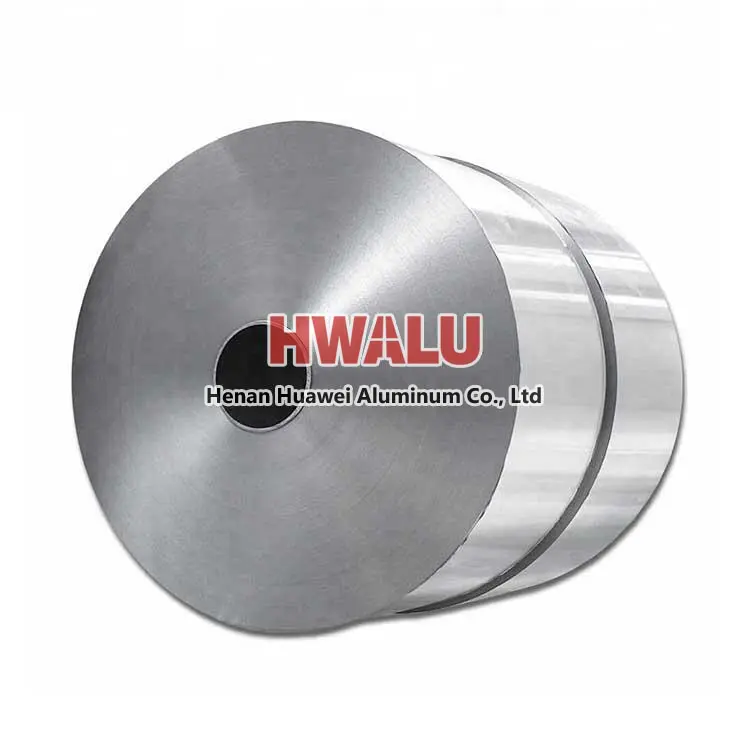Single zero aluminum foil refers to aluminum foil with a thickness between 0.01mm ( 10 micron ) and 0.1mm ( 100 micron ). 0.01mm ( 10 micron ), 0.011mm ( 11 micron ), 0.012mm ( 12 micron ), 0.13mm ( 13 micron ), 0.14mm ( 14 micron ), 0.15mm ( 15 micron ), 0.16mm ( 16 micron ), 0.17mm ( 17 micron ), 0.18mm ( 18 micron ), 0.19mm ( 19 micron ) 0.02mm ( 20 micron ), 0.021mm ( 21 micron ), 0.022mm ( 22 micron ...
what is Aluminum Foil For Microwave Oven It is commonly used to cover or wrap food items during microwave cooking, reheating, or defrosting to prevent moisture loss, splattering, and to promote even heating. However, it is important to note that not all aluminum foil is safe for use in microwave ovens. Regular aluminum foil can cause sparks and potentially damage the microwave oven, or even start a fire. Ther ...
Introduction of 8079 alloy aluminum foil What is aluminum foil grade 8079? 8079 alloy aluminum foil usually used to produce kinds of aluminum alloy foil, which offers the best properties for many applications with H14, H18 and other tempers and thicknesses between 10 and 200 microns. The tensile strength and elongation of alloy 8079 are higher than other alloys, so it is not flexible and moisture resistant. ...
Introduction: Welcome to Huawei Aluminum, a trusted name in the aluminum industry. Our 14 Micron Aluminum Foil for Food Use is a top-quality product that serves various purposes in the food packaging and laminated materials sector. In this detailed guide, we will delve into the specifics of our 14 Micron Aluminum Foil, discussing its alloy models, specifications, applications, advantages, and more. Alloy Mo ...
What is Extra-heavy duty aluminum foil Extra-heavy duty aluminum foil is a type of aluminum foil that is thicker and more durable than standard or heavy-duty aluminum foil. It is designed to withstand higher temperatures and provide extra strength, making it suitable for more demanding applications in the kitchen and beyond. Extra-heavy duty aluminum foil common alloys The common alloy used for extra-heavy ...
What is aluminum foil for food Aluminum foil for food is a type of aluminum foil that is specifically designed and manufactured for use in food preparation, cooking, storage, and transport. It is commonly used in households and food service industries to wrap, cover, and store food items, as well as to line baking sheets and pans. Aluminum foil for food is available in various sizes, thicknesses, and strength ...
1) Surface treatment (chemical etching, electrochemical etching, DC anodizing, corona treatment); 2) Conductive coating (surface coating carbon, graphene coating, carbon nanotube coating, composite coating); 3) 3D porous structure (foam structure, nanobelt structure, nano cone mechanism, fiber weaving mechanism); 4) Composite modification treatment. Among them, carbon coating on the surface is a commo ...
Product name: plain aluminum foil SIZE (MM) ALLOY / TEMPER 0.1MM*1220MM*200M 8011 O
What is the density of aluminum foil alloy? Aluminum foil is a hot stamping material that is directly rolled into sheets of metallic aluminum. Because the hot stamping effect of aluminum foil is similar to that of pure silver foil, aluminum foil is also called fake silver foil. Aluminum foil is soft, malleable, and has a silvery white luster. It also has a lighter texture, thanks to the lower density of aluminum ...
Aluminum foil is often colloquially referred to as "tin foil" due to historical reasons and similarities in appearance between the two materials. However, it's important to note that aluminum foil and tin foil are not the same thing. Here's why aluminum foil is sometimes called "tin foil": Historical Context: The term "tin foil" originated at a time when actual tin was used to create thin sheets for wrappin ...
Aluminum alloy 1350, often referred to as "1350 aluminum foil", is a pure aluminum alloy with a minimum aluminum content of 99.5%. While pure aluminum is not commonly used in pharmaceutical packaging, aluminum and its alloys (including 1350 aluminum) can be used in pharmaceutical packaging after proper processing and coating. Pharmaceutical packaging requires certain properties to ensure the safety and preserv ...
People are stepping up the search for safer, lower cost, more powerful battery systems that outperform lithium-ion batteries, so aluminum foil has also become a material for making batteries. Aluminum foil can be used in batteries in some cases, especially as an integral part of the battery structure. Aluminum foil is commonly used as a current collector for various types of batteries, including lithium-ion an ...












